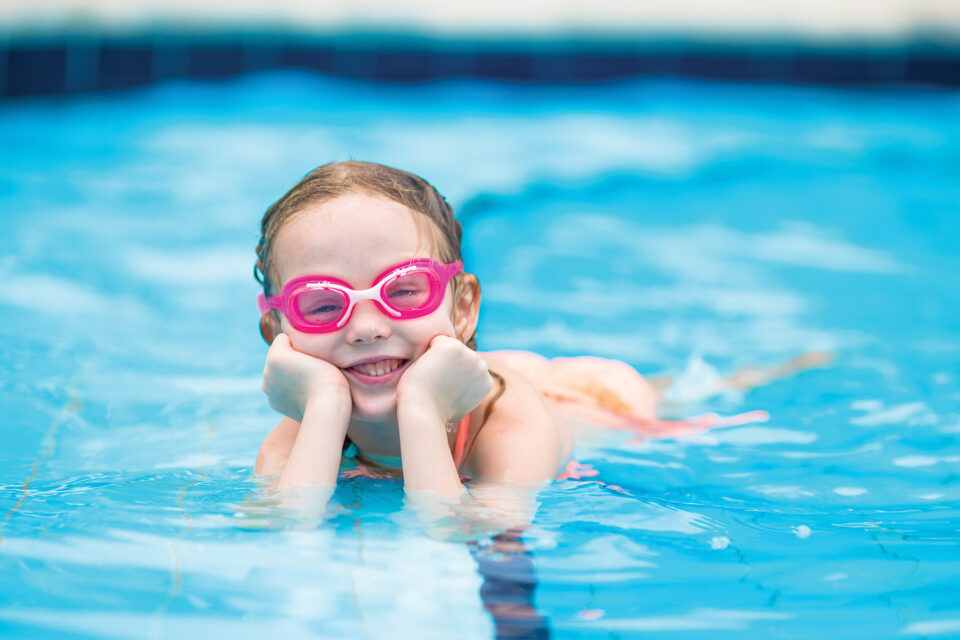Knowledge is power, and you are a great source of it for your kids when it comes to water safety.
The good thing is, you don’t need to be an expert to teach your kids the basics and help them feel confident and in control when they are splashing around.
It’s as simple as playing games and singing songs to help them feel comfortable; and getting into the water with them to show them they can have fun and be safe at the same time.
Begin by communicating safe pool habits (showing them how to enter and get out of the pool safely, for example) and tell them what to do in an emergency situation.
TALKING TO KIDS ABOUT SAFETY
- Age-appropriate conversations: These are needed with each of your kids about why we do certain things to stay safe in and around water. Don’t scare them, simply focus on safety and aim to empower them.
- Set an example: “Let them see you set a good example,” says Katheryne Ruck, DO, family medicine, at Mercy Health – Mason Primary Care. “Parents know this well: kids are always watching. Put on sunscreen, wear a life jacket, so that they see how important and easy it can be.” Encourage other adults in their life to do the same.
- Make safety a part of your routine: Emphasize water safety to your family. If your kids learn that putting on a life vest around water, for example, is the first step to going boating, it naturally becomes a habit.
- Let the kids participate: Transfer what you know about safety to your kids then involve them by asking them to help with younger kids. They will see that you trust them and it will empower them, too!
There are lots of great products on the market to get your kids engaged, says Shelby Gardner, family medicine physician with The Christ Hospital Health Network. Let your child pick out his own life jacket. Don’t rush them with all of that sunscreen, put on some music and make a game out of it to be finished by the end of the song. Line up to do each other’s backs. And if your child experiences peer pressure about safety precautions, it’s a great opportunity for letting him know he’s trusted to make the right decisions.
WHEN THE KIDS AREN’T WITH YOU
Whether a nanny is helping or grandma and grandpa, know who you’re leaving your kids with and communicate the rules and expectations from the get-go if swimming is involved.
Be sure that your sitter has CPR training and is physically and mentally capable of handling emergency situations. Be sure to leave a list of emergency contact info in a prominent place before you head out.
“It’s important for our kids to know that they are trusted by the adults in their lives,” says Gardner. “This fosters a sense of self confidence that allows them to grow into adults who can make decisions without overwhelming fear. They will learn to explore, to take reasonable risks and that it’s normal to make mistakes — that’s how new ideas are generated and how we learn new skills.”





